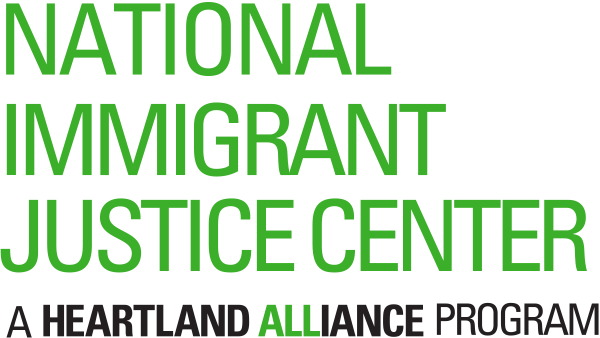The National Immigrant Justice Center (NIJC) condemns the Trump administration’s newest hurdle to immigrants seeking to obtain lawful status and maintain secure lives in the United States. The Department of Homeland Security’s proposed changes to “public charge,” released this week in the Federal Register and scheduled to take effect on October 15, 2019, will deny access to lawful permanent resident status for immigrants who use public programs or are perceived as likely to use them based on dubious assessments of health and employability.
“The new public charge rule closes the door to lawful status for immigrants, punishes people for being poor and forces families to make decisions no person should have to make,” said NIJC Executive Director Mary Meg McCarthy. “It goes against the values Americans have striven to achieve since our country’s founding, which is why hundreds of thousands of people submitted comments opposing this rule when it was first announced. The long-term impact, if it is fully implemented, will hurt all of us.”
For decades, the U.S. government has used a “public charge” test to determine if a person is likely to become dependent on the government. Until now, only individuals dependent on a limited number of publicly funded programs such as Temporary Assistance for Needy Families and Supplemental Security Income were deemed public charges. The new test will punish immigrants for using a much broader range of programs including Supplemental Nutrition Assistance Program (SNAP), public housing, and Medicaid. Additionally, the Department of Homeland Security may determine an individual is likely to be a future public charge and block them from permanent status based on factors such as whether they are low-income, too old or too young, their health and education, and whether they have received public aid in the past. Receiving Medicaid will not count against individuals who are under the age of 21, pregnant, or up to 60 days post-partum.
“Many NIJC clients are members of the working class in America, working shoulder to shoulder with people from all walks of life,” said Lisa Koop, associate director of legal services, who oversees NIJC’s office in Goshen, Indiana. “They perform hard work with dignity, and strive to support their families and prepare their children to access opportunity through education and hard work. The administration’s new public charge rule disrespects the working class, ignores the significant contributions immigrant workers pay into public benefits programs, and betrays the belief in the value of hard work held by most Americans.”
NIJC, a member of the Protecting Immigrant Families-Illinois coalition, encourages immigrants who currently rely on any of these programs to remain enrolled until the new rule takes effect, and to seek advice from qualified immigration attorneys regarding their future options. We are working with partners across the country to review the 837-page rule and will continue to share details about the rule’s scope and implications.

